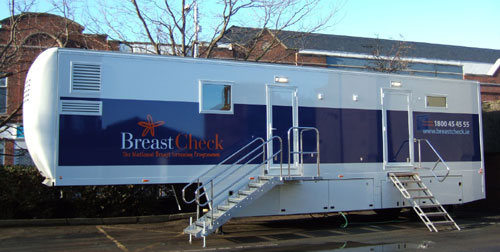A CLARE woman’s experience of cancer screening services during the pandemic has been described in the Dail as “a living nightmare”.
The woman, who was diagnosed with an aggressive form cancer after an 18-month wait for routine screening, had her case highlighted by Deputy Violet Anne Wynne during a series of statements on Breast Cancer Awareness Month.
“She was not informed that screening had stopped,” Deputy Wynne said, referring to the pausing of BreastCheck services during the pandemic. “She has attended her mammogram every year. However, the service just stopped and she did not have access to a mammogram for 18 months. Worse still, she was not notified, there was no consultation or communication and no information was inputted on the website.”
The Sinn Fein representative said that would have gone for private screening but “was left in the dark battling rising anxiety”. “She knew something was wrong and eventually, a ball of nerves, she went to her doctor,” Deputy Wynne continued. “Unfortunately, she had aggressive breast cancer. By the time comprehensive screening took place, it had unfortunately spread to her lung and liver.”
The Kilrush-based representative said the last year has been “a living nightmare”, for the woman. The TD has submitted parliamentary questions on the woman’s behalf “to try to get some form of accountability about how this situation has arisen”.
Deputy Wynne was among a number of TDs to voice grave reservations about the adequacy of screening services in light of the pandemic and the impact of the cyber attack.
“The registry is currently 12 months behind, which means that if a woman has not had a screening over the Covid period, she may have to wait another year, which will be three years in total without screening,” Deputy Wynne said. “Investment now in upscaling early detection measures is far more economically viable, as well as being better for our people.”
She added that despite assurances given by BreastCheck that screening is back on track, women don’t feel confident about the resumption. “Women are feeling ignored and dejected, and are frustrated by the situation,” she said.
Deputy Wynne was also critical of lack of investment in cancer services. “Long before Covid-19, crucial targets in the national cancer strategy were missed relating to timely access to diagnostics, surgery, radiotherapy and screening,” she said. “We are in the middle of the State’s third national cancer strategy and services are still under-resourced, including breast cancer services… The Irish Cancer Society’s justified ask of €45 million was abjectly ignored and just €30 million in additional funding was given.”
On the government’s behalf, Minister of State at the Department of Health, Deputy Frank Feighan outlined figures on breast screening in 2021.
“Approximately 86,000 women were screened between January and September this year, well in excess of the original target of 63,000,” he said. “September’s BreastCheck attendance figure of 16,000 is in line with the throughput in September 2019, before the onset of Covid.”
He added that a further €10 million in the national screening service would support the development and opening of new BreastCheck units and the recruitment of more staff to enhance capacity. He said that an extra €20 million had been allocated for the continued implementation of the national cancer strategy this year, with €1.8 million allocated specifically for breast cancer services. A figure of €12 million was allocated this year for the restoration of cancer services in the context of Covid-19. “This is being used to support hospitals in addressing backlogs, such as running extra evening and weekend clinics, extended working days, virtual clinics, increasing diagnostic capacity and providing locum-temporary support,” he said. “Symptomatic breast disease clinics are among the main beneficiaries of this funding.”
Junior Minister Feighan added that the continuation of cancer services throughout the Covid-19 pandemic” is testament to the great commitment shown by dedicated hard-working healthcare staff who have continued to give expert compassionate care to our loved ones with cancer, with invaluable guidance provided by the HSE’s national cancer control programme”. He also acknowledged the role played by community and voluntary sector organisations in supporting cancer patients and their families through the pandemic.
He said it is important for people to know that BreastCheck screening and symptomatic cancer diagnostic and treatment services are open and that healthcare staff will provide the care people need.


